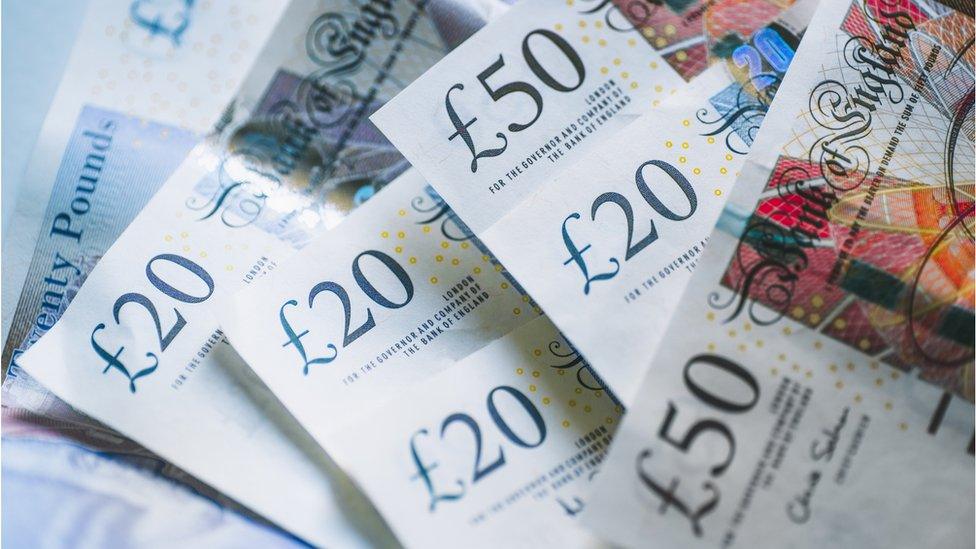Stormont: What is in the £3.3bn financial package?
- Published
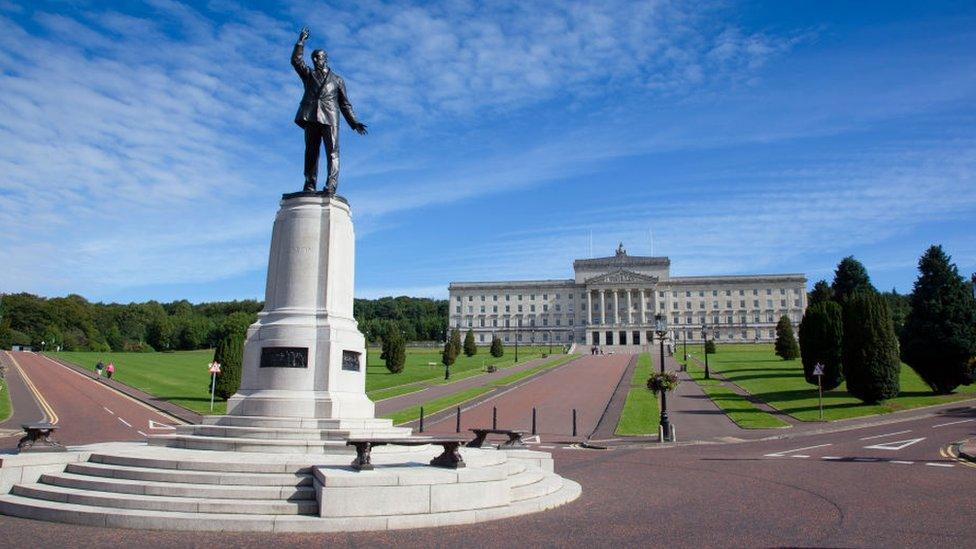
Northern Ireland secretary said the package was generous and it was "now time for decisions"
Talks between the UK government and Northern Ireland's political parties are resuming and if a deal is struck, £3.3bn is available.
The government has called for the Democratic Unionist Party (DUP) to agree a return to Stormont, so the financial package can be implemented.
The Northern Ireland secretary said the package was generous and it was "now time for decisions".
But what is in this financial package? BBC News NI has been taking a look.
Public sector pay
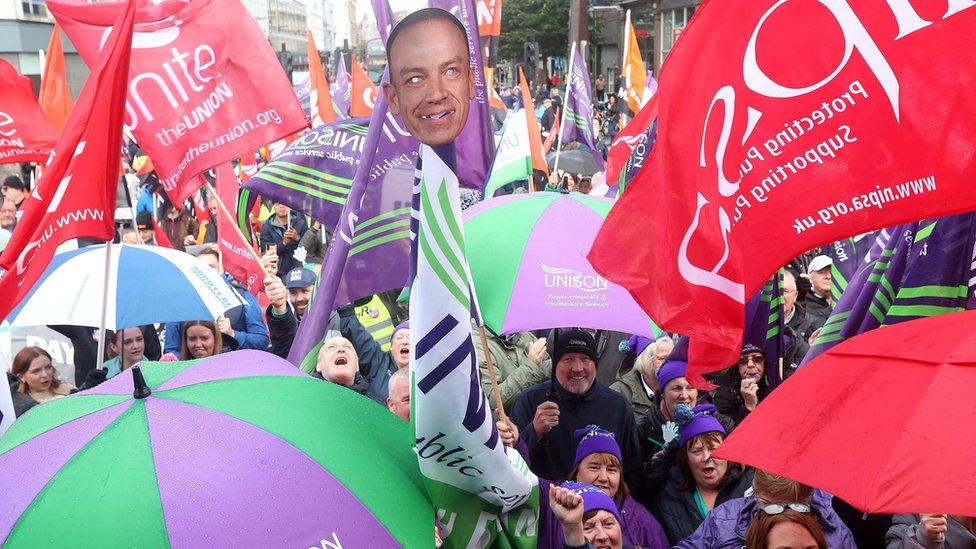
Unions believe the public sector workers strike will be the biggest in NI history
Almost £600m is on offer to help settle public sector pay claims.
Public sector pay in Northern Ireland has fallen sharply in real terms over the last two years due to high inflation and a Stormont budget crisis.
The civil servants currently running Stormont say there is no money for pay rises without the additional central government funding.
Public sector unions are due to hold a major strike over pay on Thursday. They say the money should be released whether or not the DUP returns to the Executive.
Overspend forgiveness
Stormont overspent last year and is on course for another overspend this financial year: the total sum is estimated at £560m.
Normally an overspend should be repaid to the Treasury the year after it has happened.
However, the government says it is prepared to freeze any repayments for two years and then write the money off entirely if a new executive shows it has credible spending plans.
Public services
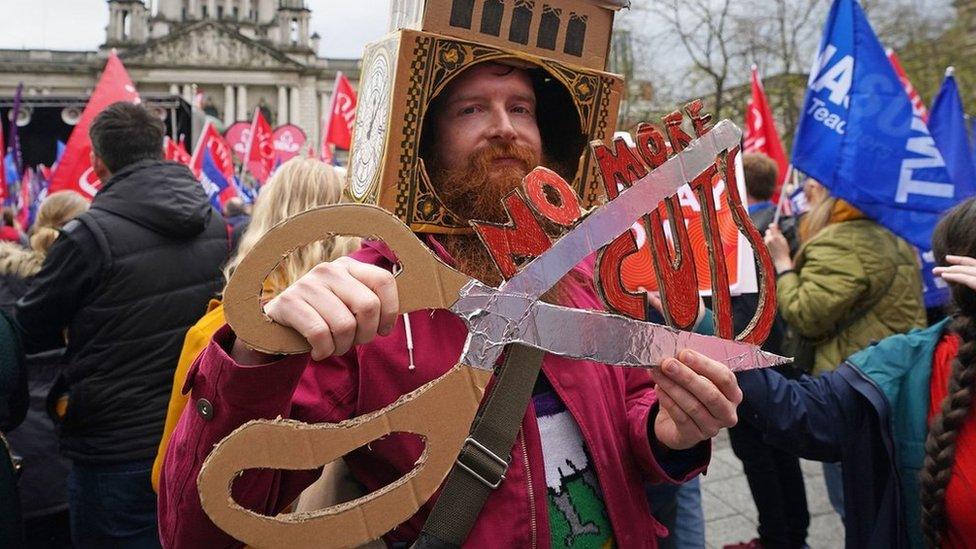
Some £1.125bn of "stabilisation funding" will be made available over the next two years. It is aimed at helping strained public services.
There will be additional dedicated funds of £34m for tackling hospital waiting lists and £15m to help the Police Service of Northern Ireland with the impact of a major data breach.
The amount Stormont can borrow for infrastructure projects will be increased, with the borrowing ceiling rising by £135m over the next five years.
About £600m of central government funding which has previously been announced for Northern Ireland can be reallocated to better suit the priorities of a new executive.
A new funding formula

David Phillips said the new arrangement would be worth 'billions a year' extra in the longer term.
A new "fiscal floor" would mean public spending per head in Northern Ireland would always be at least 24% higher than it is in England.
This is to reflect the higher costs of delivering public services of an equivalent standard in Northern Ireland.
It is similar to the arrangement in Wales where the normal allocation of funds from central government is topped up to make sure spending never falls below a floor.
David Phillips, a public finance expert at the Institute for Fiscal Studies, said the new arrangement would be worth "billions a year" extra in the longer term.
An investment zone
Investment Zones are a UK wide "levelling up" policy giving tax reliefs and other economic incentives to a defined area.
It is not yet clear where the Northern Ireland zone would be.
Some economists are sceptical of the zones promised benefits saying they are more likely to move economic activity around rather than grow the economy overall.
The conditions
Aside from the DUP returning to the executive, the major condition attached to the package is a willingness to raise more funds locally through taxes or charges.
In the short term, that is most likely to mean an increase in rates, the property taxes paid by households and businesses.
A new executive would also have to set up an independent Public Services Transformation Board, to push forward reforms.
- Published15 January 2024
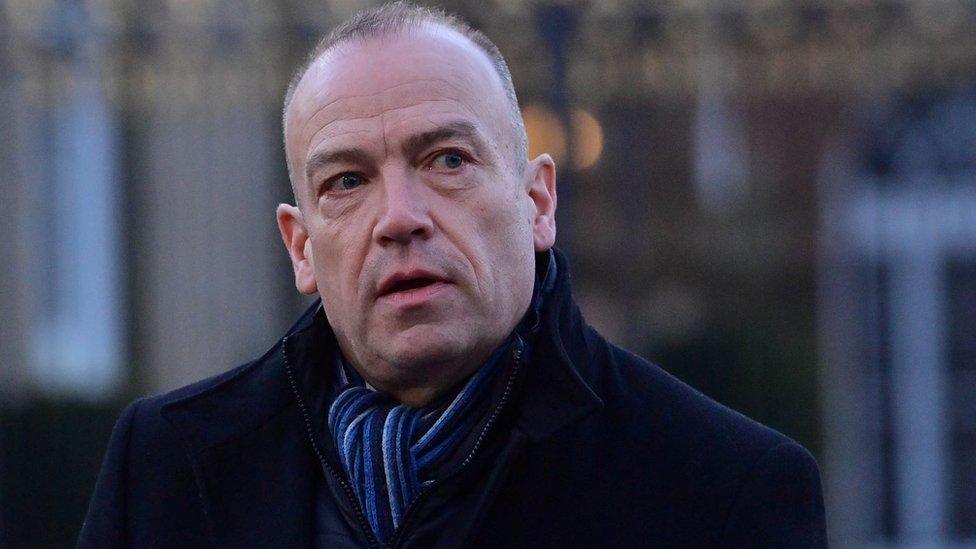
- Published19 December 2023
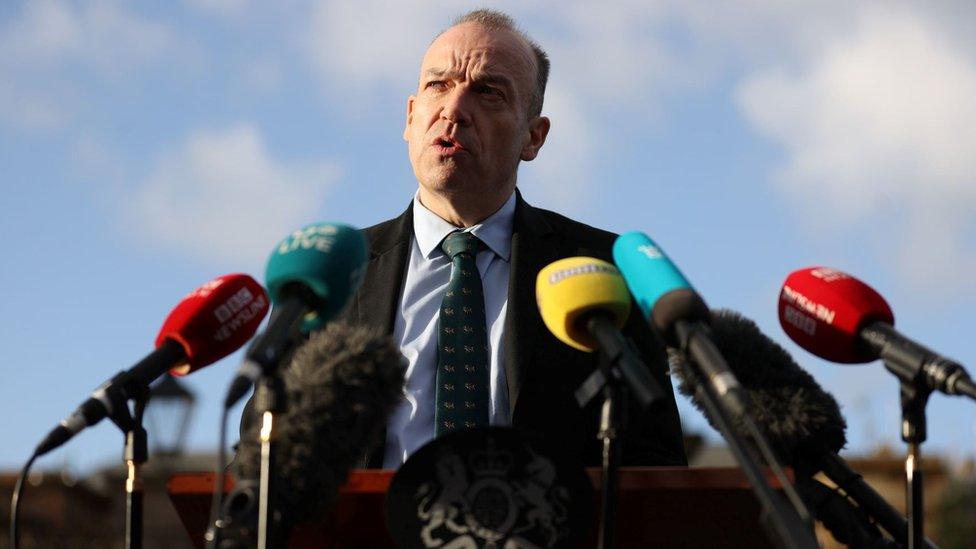
- Published19 December 2023
